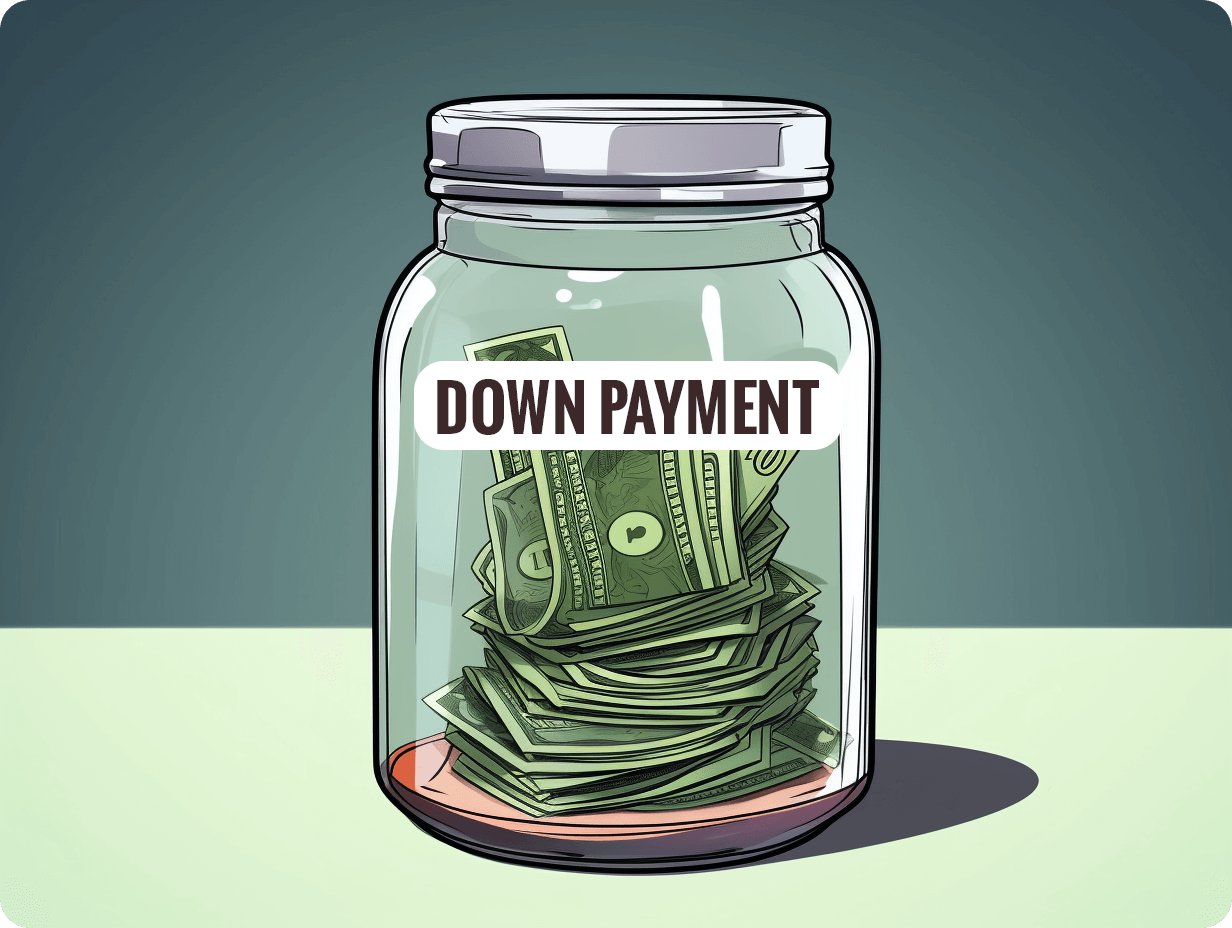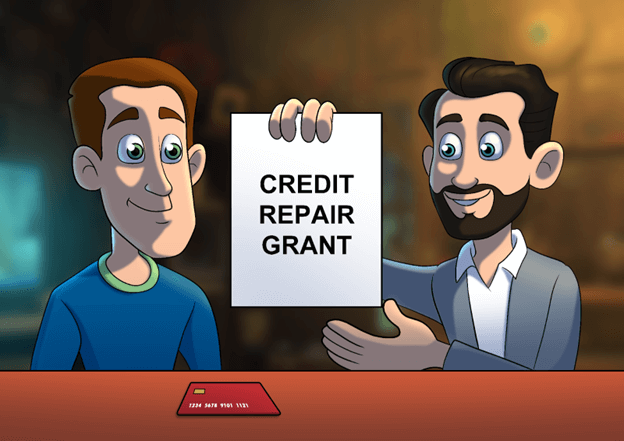- Blogs
- /
- How Does a Mortgage Work? Six Easy Steps to Quicken the Process
How Does a Mortgage Work? Six Easy Steps to Quicken the Process

Summary
So, how does a mortgage work? For millions, the dream of owning a home is a cornerstone of financial achievement. However, navigating the path to homeownership can be complex and challenging. And that’s because of one thing: The Mortgage.
You see, when it comes to real estate, the word ‘mortgage’ often carries an air of complexity. That’s why today, we’ll focus on the nuances of securing a mortgage.
From down payments to interest rates, we’ll break down complex jargon into plain language so you can easily understand what it all means for your financial future.
It doesn’t matter whether you’re a first-time buyer or looking to refinance; this guide will demystify mortgage mechanics and empower you with the essential knowledge you need.
Let’s dive in!
Key Takeaways
- Mortgages are legal contracts that outline how much money is being borrowed, at what interest rate, and for how long.
- You can qualify for a mortgage by depositing 5% of the property’s purchasing price. However, the higher your deposit, the less money you’d need to borrow.
- A high credit score is vital for securing a mortgage as it directly influences lenders’ interest rates and terms.
- An excellent credit score reduces your interest rate and mortgage payment.
- You can boost the equity in your home by making a larger down payment.
- Debt-to-income ratio (DTI) is the ratio of your monthly debt payments to your gross monthly income. Having a 35% DTI improves your chances of getting your mortgage approved.
- During closing, you could spend an extra 2% to 5% of the property’s value on attorney fees and title insurance.
How Does a Mortgage Work?
A mortgage is a loan from a bank or financial institution specifically used to buy real estate. When you take out a mortgage, the bank lends you the money to purchase the property. In return, you agree to pay back the loan amount plus interest over an agreed-upon period, typically 15 to 30 years.
In a mortgage agreement, the purchased property is collateral for the loan. Meaning that if you fail to repay the loan, the lender has the right to take possession of the property.
Here’s Why Mortgages are Important
Mortgages are essential for two critical reasons. First, they help folks who may not have enough savings or income to afford to buy a home in cash to purchase a home outright. Without mortgages, millions of people wouldn’t be able to afford homes.
The second is that lenders use mortgages as an opportunity to generate income through interest payments.
When they lend money for a mortgage, they charge interest on top of the original amount borrowed. This allows them to earn profit while helping millions of people achieve their homeownership dreams.
12 Mortgages Terms You Must Know
Here are twelve mortgage terms every aspiring homeowner must know.
- Principal: The principal is the initial amount borrowed for your mortgage. Understanding this term is fundamental as it directly impacts your monthly payments and overall loan amount.
- Interest rate: This determines the cost of borrowing. A lower rate means lower monthly payments and less interest over the life of the loan.
- Down payment: The down payment is the initial payment you make when purchasing a home. A larger down payment often leads to more favorable loan terms.
- Amortization: Amortization refers to the repayment schedule. Knowing how your payments are structured over time and how much goes towards interest and principal is crucial.
- Closing costs: Closing costs are additional fees associated with finalizing a mortgage. Being aware of these costs helps you budget accurately for the home-buying process.
- Escrow: Escrow is a separate account where your lender holds property taxes and insurance funds. Understanding this ensures you’re prepared for these ongoing expenses.
- Loan-to-value ratio (LTV): The LTV ratio compares the loan amount to the home’s appraised value. A lower ratio may result in better loan terms.
- Private mortgage insurance (PMI): PMI is often required if your down payment is less than 20%. Knowing about PMI helps you anticipate additional costs.
- Title insurance: Title insurance protects you and your lender from ownership disputes or title-related issues arising after the purchase.
- Mortgage points: Points are fees paid upfront to lower your interest rate. Understanding points helps you decide if buying down your rate is cost-effective.
- Home Equity: Home equity is the difference between your home’s value and the outstanding mortgage balance. It represents your ownership stake in the property.
- Debt-to-income ratio (DTI): DTI compares your monthly debt payments to your gross monthly income. Lenders use this ratio to assess your ability to manage additional debt.
Four Major Types of Mortgages

1. Fixed Rate Mortgage
This mortgage offers a consistent interest rate throughout the loan term. This means your monthly payments remain the same no matter what.
This makes it easier for you to budget and plan for the future. This type of loan is ideal for those seeking long-term stability in their mortgage payments.
2. Adjustable Rate Mortgage
This mortgage features an interest rate that fluctuates based on market conditions. Initially, these loans may offer lower rates than fixed-rate mortgages.
But although this mortgage’s interest rates may adjust over time, there are limits to how much it can rise each time and how it can rise throughout the duration of the loan.
This option is perfect for folks expecting changes in their financial situation and are prepared for potential fluctuations in their mortgage payments.
3. Government-Backed Mortgages
These mortgages are supported by government agencies like the FHA or VA. These loans are designed to assist specific groups, like first-time homebuyers or veterans, and often have more lenient qualification requirements than conventional mortgages.
Government-backed mortgages aim to make homeownership more accessible by offering favorable terms and conditions tailored to particular demographics.
4. Conventional Mortgages
Conventional mortgages aren’t insured or guaranteed by government entities. These mortgages are offered by private lenders and typically require higher credit scores and down payments than government-backed options.
And although conventional loans offer flexibility for borrowers, in terms of eligibility criteria, it can be more challenging for some borrowers to qualify because they often have stricter requirements.
How the Mortgage Process Works

Step 1: Prepare Your Finances
When preparing for a mortgage, it’s crucial to understand the significance of your credit score. Lenders use this score to assess your creditworthiness and determine whether you qualify for a loan and what interest rate you’ll receive.
A higher credit score often leads to lower mortgage rates, saving you money over time. Also, it’s worth noting that lenders consider your debt-to-income ratio when evaluating your financial health.
This ratio reflects how much your income goes toward paying off debts like car loans or credit card bills.
So, you stand a higher chance of securing excellent mortgage terms if you have a high credit score and a low debt-to-income ratio.
Step 2: Choose a Lender and Loan Type
Once your finances are in order, research and compare various lenders to find the best one that suits your needs.
Start by considering traditional banks, credit unions, mortgage brokers, and online lenders. Look into the lender’s reputation, customer reviews, and responsiveness. Your goal here is to find a reputable and communicative lender because that’d make your mortgage process smoother.
Pay attention to:
- The type of mortgage you want and what the lender offers.
- Compare interest rates and fees. Pay attention to their long-term effects.
- Study the loan’s terms and conditions.
- Understand the down payment requirement.
- Pre-approval procedure.
Doing this lays a solid foundation for getting an excellent mortgage offer with the lowest interest rate.
Step 3: Get Mortgage Pre-approval
A mortgage pre-approval is a letter that shows that lenders have reviewed your financial situation and determined that you satisfy their requirements to be approved for a loan.
Securing a mortgage pre-approval offers several advantages. It gives you an estimate of the loan amount you can expect from lenders based on your financial situation.
Also, real estate agents and sellers take pre-approved buyers more seriously because they’ve shown their ability to obtain financing.
To get pre-approved for a mortgage, gather essential documents like pay stubs, W-2 forms, bank statements, and tax returns.
Step 4: Go House Hunting
When house hunting, ensure you have a budget in mind. This way, you can ensure you don’t spend beyond your limit and lock yourself in perpetual debt.
And getting debt trapped often happens with folks who ignore factors that can increase the monthly mortgage payments like property taxes and insurance costs.
Also, working with experienced real estate agents can help get deep insights into the local market conditions and navigate various listings efficiently.
Step 5: Apply for a Mortgage
The first step to applying for a mortgage involves completing an in-depth application with your personal and financial details. This information helps lenders evaluate whether the borrower can repay the loan.
The process includes submitting documents, like pay stubs and tax returns, to verify your income and assets. This documentation demonstrates your financial stability and ability to meet mortgage obligations.
Also, ensure you grow your credit score because it can influence how much interest rate you qualify for, ultimately impacting the overall cost of your mortgage.
Having an excellent credit score and a well-documented financial history can smoothen your mortgage application and position you for success in getting your own home.
Step 6: Get Your Home Appraised
Once you’ve submitted your mortgage application, the next step you need to take is getting a home appraisal. Appraising the home would give you a professional opinion of the property’s fair market value you’re about to finance.
Doing this is essential because it can protect you from overpaying for a property. And this influences how much money you’d have to pay for the mortgage.
Step 7: Close on the Property
Once your mortgage has been approved, you can close on the property. During closing, the property’s ownership officially changes hands, and during the process, you’d have to sign various legal documents related to the loan and property transfer.
Closing could also incur additional costs for services rendered throughout the process, like attorney fees or title insurance. It may cost you about 2% to 5% of the total cost of the property. But these fees depend on your mortgage lender, state, and the kind of mortgage loan you took.
Two Things You Must Know After Getting a Mortgage

Monthly Payments
After securing a mortgage, you need to understand the monthly mortgage payments. These payments typically consist of two main components: principal and interest and escrow payments.
The first part of your monthly payment goes towards repaying the amount you borrowed, which is the principal. The second part covers the cost of borrowing the money, known as the interest.
So, if you borrowed $800,000 at a 6% interest rate for 30 years, your monthly principal and interest payment would be approximately $3,837.
Property Taxes and Homeowner Insurance
Besides paying off your loan, part of your mortgage payment goes toward taxes and insurance. Property taxes are usually paid annually to fund local services like schools and roads. Insurance protects against property damage or loss caused by unforeseen events like fires or natural disasters.
Both taxes and insurance are often included in escrow accounts managed by lenders to ensure they’re paid on time.
Not paying your property taxes or insurance can result in penalties or even foreclosure on your home. So, ensure you manage these expenses when making your mortgage payment.
Another important concept related to mortgages is escrow accounts. Lenders may require borrowers to contribute a portion of their annual tax and insurance expenses with each mortgage payment into an escrow account held by the lender.
Doing this ensures enough money to cover these costs when they become due. Lenders handle disbursements from this account when it’s time to pay property taxes or insurance premiums, providing peace of mind for both parties involved in the mortgage agreement.
Final Thoughts
Mortgages aren’t just financial transactions. They are the keys to unlocking the doors to your new home. And understanding how your mortgage interest rates, loan types, and lenders work will help you make the best mortgage decisions to align with your financial situation.
Yes, we understand that applying for a mortgage can be exhausting. But following the six steps we’ve discussed would make your homeownership journey quick and easy.
Remember, getting a mortgage is a big financial commitment, so always stay informed and seek professional advice whenever you face anything confusing.
FAQs
How does a mortgage work?
Mortgages are loans used to purchase a home. The borrower makes a down payment and repays the loan amount plus interest over time.
If the borrower fails to make payments, the lender can take possession of the property.
What are the different types of mortgage loans?
The various types of mortgages include fixed-rate, adjustable-rate, FHA, VA, and USDA loans.
Each type has its terms and conditions regarding interest rates, down payments, and eligibility requirements.
How can I qualify for a mortgage?
Lenders consider factors such as credit score, income stability, employment history, debt-to-income ratio, and down payment amount when determining your eligibility for a mortgage.
What is mortgage amortization?
Amortization refers to paying off a loan over time through regular monthly payments that cover both principal and interest. At first, more goes towards interest but gradually shifts towards principal.
Should I get mortgage insurance?
If you make less than a 20% down payment on your home purchase or refinance with less than 20% equity in your home, you’ll likely need private mortgage insurance (PMI), which protects lenders if you default.
Our Latest Blogs:
FREE Strategy Session to Fix Your Credit Blogs / In today’s digitally interconnected world, we all face the danger...

ThisIsJohnWilliams
FREE Strategy Session to Fix Your Credit Blogs / In a society where credit scores can significantly influence economic...

ThisIsJohnWilliams

ThisIsJohnWilliams

ThisIsJohnWilliams

ThisIsJohnWilliams
FREE Strategy Session to Fix Your Credit Blogs / Facebook Twitter Linkedin Instagram Share Summary Your credit score is...






